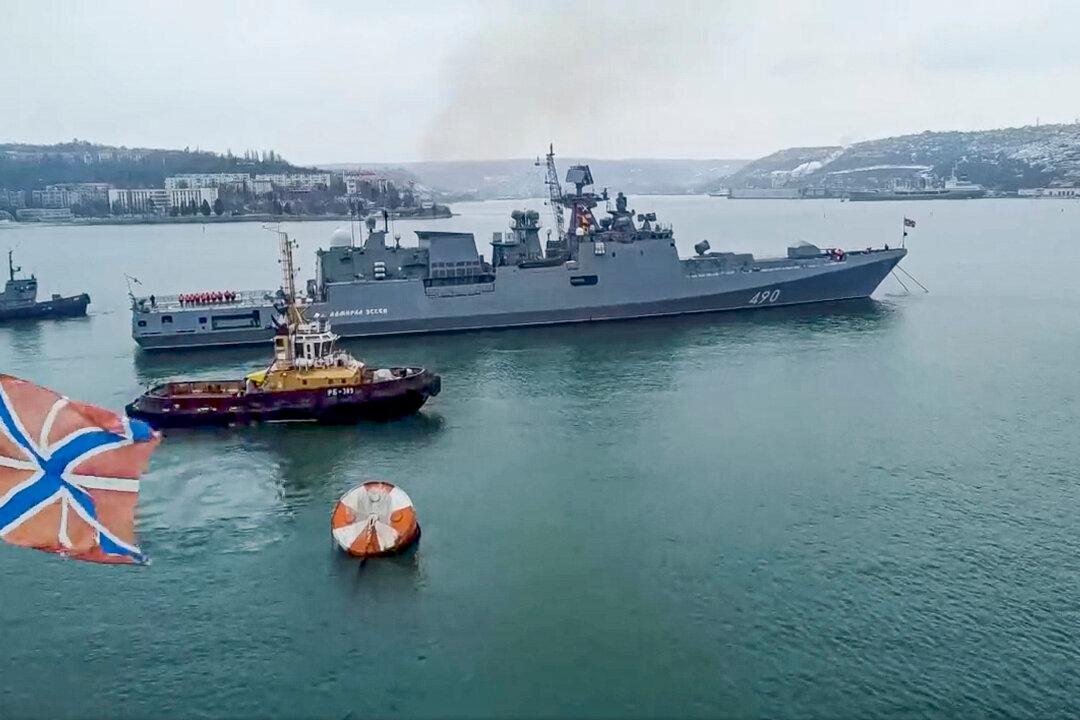Russia deployed more troops and fighter jets to Belarus on Jan. 26 as part of a major military exercise between the two allied nations—while more than 20 Russian warships departed their naval bases for drills in the Black Sea.
The Russian Ministry of Defense said in a statement that it relocated crews of Su-35S multirole fighter aircraft of the Eastern Military District to Belarus as part of the “Allied Resolve-2022” joint exercises that will be held early next month.





